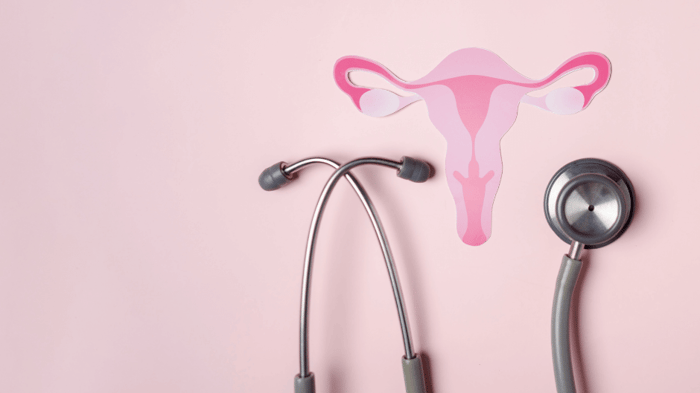Six weeks. That’s the magic number new mothers often hear. After the six-week checkup, doctors clear women for “normal activities,” including sex. But the truth is far more complicated. Many women attempt intimacy weeks or months after birth, only to find their bodies aren’t ready. For some, sex feels different; for others, it feels uncomfortable, dry, or even painful.
This reality is rarely talked about. Postpartum discomfort during sex is treated as a short-term issue, something to endure until it fades. Yet for many women, the problem persists much longer, quietly affecting relationships, self-image, and emotional well-being.
This article explores why sex can be uncomfortable after having a baby, why the issue often lingers, and what can be done to restore comfort. From hormones and healing to mental health and natural remedies, we’ll unpack the factors that shape postpartum intimacy and highlight practical solutions that help women feel empowered in their bodies again.
Why Sex Feels Different After Baby
Sexual discomfort after childbirth has multiple layers. The body undergoes profound changes during pregnancy, labor, and postpartum recovery, and each of these leaves an imprint on intimacy.
Hormonal Shifts That Affect Lubrication and Sensation
Estrogen plays a central role in vaginal health. It thickens the vaginal lining, increases blood flow, and promotes natural lubrication. After childbirth, estrogen levels drop dramatically. For breastfeeding women, estrogen remains low for months, sometimes years, creating an environment where dryness and discomfort are common.
Low estrogen doesn’t just affect lubrication. It also thins vaginal tissues, making them more fragile and prone to irritation. The sensation of rawness or burning during sex is a direct consequence of this hormonal landscape.
Scarring and Tissue Changes After Delivery
Tears, episiotomies, and stitches are part of many births. Even when tissues heal, scar tissue forms. Scar tissue is stiffer and less elastic, which can make penetration uncomfortable. Some women describe a persistent pulling sensation or sharp pain localized to the scar area.
These changes aren’t visible on the surface, but they reshape how the body experiences intimacy. Recovery is possible, but it requires targeted support and, in some cases, professional therapy.
Pelvic Floor Weakness or Tension
The pelvic floor muscles support the bladder, uterus, and vagina. Childbirth stretches these muscles, sometimes weakening them. A weak pelvic floor can lead to reduced sensation or difficulty achieving orgasm. On the other hand, some women develop overly tight pelvic floor muscles as a protective response to pain. In both cases, discomfort during sex is a frequent outcome.
The Impact of Exhaustion and Stress
Sleep deprivation, physical exhaustion, and the stress of caring for a newborn can’t be underestimated. Cortisol, the stress hormone, interferes with estrogen and testosterone production. As a result, libido decreases, and arousal becomes harder to achieve. Even if desire is present, the body may not respond with the same readiness, leading to dryness and discomfort.
Beyond the Physical: The Emotional Weight of Postpartum Sex
Physical healing is only one piece of the puzzle. Emotional and psychological factors profoundly influence how sex feels after a baby.
How Fear of Pain Shapes Intimacy
For many women, the first painful attempt at sex after childbirth creates lingering fear. The body anticipates pain, and that anticipation can cause physical tension, making discomfort worse. This cycle of fear and pain becomes difficult to break without reassurance and new strategies for intimacy.
The Role of Body Image in Desire
Pregnancy and childbirth reshape the body. Stretch marks, weight changes, and scars can leave women feeling less confident or disconnected from their sexual identity. This self-consciousness affects arousal. When the mind is focused on insecurities, the body struggles to relax into pleasure.
Relationship Dynamics After Parenthood
Couples face new stressors after a baby: sleep deprivation, shifting roles, and less time for each other. Intimacy can easily become a source of pressure rather than connection. If one partner feels rejected, and the other feels guilty or anxious, the discomfort of sex becomes entangled with relationship strain.
Recognizing the Different Faces of Discomfort
Sexual discomfort after childbirth isn’t a single experience. For some women, it manifests as burning dryness. For others, it’s deep pelvic pain, numbness, or even a loss of desire.
Dryness is often the most common complaint, fueled by hormonal changes and stress. But equally impactful are the sensations of tightness around scar tissue or spasms in the pelvic floor. Some women feel pain at entry, others during deep penetration, and others only after intercourse.
Numbness can be just as frustrating. Reduced sensitivity makes arousal more difficult, and without arousal, natural lubrication declines further. Emotional discomfort—fear, guilt, shame—compounds these sensations, creating a feedback loop that extends well beyond the physical.
Medical and Professional Interventions
For women who continue to struggle with painful or uncomfortable sex, professional support is an important option.
Pelvic Floor Therapy: Restoring Strength and Circulation
Specialized physical therapists can evaluate pelvic floor function and design exercises to restore balance. Strengthening weak muscles improves blood flow and sensation, while relaxation techniques release tension in overly tight muscles. Therapy may also involve manual massage, biofeedback, or guided breathing exercises.
Hormonal Options: Estrogen Creams and Beyond
Topical estrogen creams or vaginal rings deliver small doses of hormones directly to the vaginal tissue. These treatments restore thickness, elasticity, and lubrication. For women open to hormonal support, they can be effective within weeks. Alternatives like DHEA vaginal suppositories may also be recommended.
Counseling and Sex Therapy
When discomfort has created a cycle of anxiety or avoidance, therapy can provide tools to rebuild intimacy. Sex therapists work with both individuals and couples to address fears, reshape expectations, and reintroduce pleasure at a comfortable pace.
Natural Pathways to Comfort
Not every woman wants or needs hormonal treatments. For many, natural approaches provide a gentler way to rebuild comfort and confidence.
Hydration from Within: Slippery Elm Bark (She Juicy)
Slippery elm bark has been used for centuries to soothe mucous membranes. Its mucilage coats and nourishes tissues, promoting hydration. In Flower Power’s She Juicy, this property is harnessed in a daily capsule designed to restore natural vaginal moisture without hormones. Unlike lubricants, which work temporarily, slippery elm supports long-term balance by working from within.
Circulation and Flow: Omega-3s
Omega-3 fatty acids, found in fish oil and plant-based sources like flaxseed, support vascular health. Improved circulation enhances the body’s arousal response, making natural lubrication more likely. Omega-3s also reduce inflammation, creating a more comfortable vaginal environment.
Repair and Resilience: Vitamin E
Vitamin E is well known for its skin benefits, but it also supports vaginal tissue repair. By strengthening cell membranes and promoting healing, vitamin E improves elasticity and resilience. Women using vitamin E often report less irritation and greater comfort during intimacy.
Balance and Protection: Probiotics
The vaginal microbiome plays a crucial role in comfort. When beneficial bacteria decline, irritation and infections become more common. Probiotics help restore balance, regulate pH, and create an environment where natural lubrication can thrive.
Practical Self-Care Strategies for Rediscovering Pleasure
While supplements and therapies provide targeted support, everyday habits also play a powerful role in overcoming discomfort.
Simple measures like staying hydrated improve mucosal health across the body. Warm baths before intimacy can relax muscles and increase circulation, making penetration less painful. Lubricants should be used freely—there is no shame in external support, and high-quality, water-based or silicone-based products can transform the experience.
Experimenting with positions that reduce pelvic pressure or allow women to control depth and pace also makes a significant difference. Equally important is reframing intimacy itself: focusing on touch, extended foreplay, and non-penetrative activities removes the pressure of “performance” and restores confidence.
When self-care practices are treated as rituals rather than obligations, they create a foundation of comfort that extends beyond the bedroom.
Mental Health and the Mind-Body Connection
Discomfort during sex after childbirth is not only physical. The mind exerts a powerful influence over the body.
Anxiety about pain often leads to involuntary tightening of pelvic muscles, which intensifies discomfort. This tension loop is best addressed by mindfulness practices such as breathing exercises, meditation, or yoga. These approaches calm the nervous system, making the body more receptive to arousal and relaxation.
Trauma from a difficult birth can also manifest in intimacy. Counseling provides space to process these experiences and build new associations with touch. Even without formal therapy, practicing self-compassion and rejecting the idea of a fixed “timeline” for recovery can reduce psychological barriers.
FAQs About Postpartum Sex and Discomfort
How long does postpartum discomfort usually last?
There is no single timeline. Some women feel comfortable within a few months, while others continue to experience discomfort for a year or more. Healing depends on hormones, scar tissue, pelvic floor strength, and overall health.
Can breastfeeding cause dryness?
Yes. Breastfeeding suppresses estrogen, which reduces natural lubrication. The effect is temporary, but symptoms can last as long as lactation continues.
Is dryness common after a C-section?
Yes. Even without vaginal delivery, hormonal changes affect lubrication. Discomfort is not limited to women who gave birth vaginally.
Can natural supplements be taken long-term?
Most natural supplements, such as slippery elm bark, omega-3s, and probiotics, are safe for ongoing use. However, women should consult their healthcare provider, especially if they are taking other medications.
How can I bring this up with my partner?
Approach the conversation with honesty and vulnerability. Framing it as a shared journey—“I want to enjoy intimacy again, but I need patience and support”—helps partners understand and collaborate rather than pressure.
Conclusion
Sex after a baby doesn’t have to be defined by discomfort. While pain, dryness, and anxiety are common, they are not permanent. With professional help, natural supplements, self-care rituals, and open communication, women can restore pleasure and confidence at their own pace.
The goal is not to “return” to how things were before, but to embrace a new chapter of intimacy shaped by resilience, creativity, and care.
Your body has carried life. It deserves to carry joy, comfort, and pleasure again.










